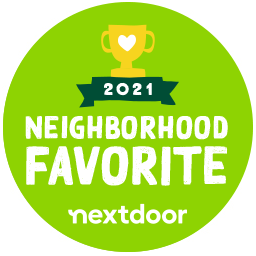If you have not already done so, please read our Housebreaking Puppies page before this one.
Pet crates are an excellent way to train your dog and provide it with sanctuary. There are numerous benefits to crate training your dog including; a sense of security for your dog, safety for your dog and young children, preventing costly damage, easy traveling, and helping to train proper elimination. Small enclosed areas encourage puppies to develop conscious muscle control to inhibit elimination at inconvenient times. A crate can be an essential step in the house breaking process. However, the crate should never be used as punishment.
Finding the right size crate and introducing the puppy to the crate correctly are extremely important. A crate should have enough room for the dog to stand and turn around. Crates are available that come with partitions so that the size of the area you are confining the puppy in can increase as the puppy grows. Crates are not for every dog. If a dog panics, becomes distressed, chews at the bars, destroys the crate, routinely vomits, urinates or defecates (as an adult), or damages its teeth or nails, that dog should not be crated. When introduced correctly as a puppy, almost every dog will accept the crate.
CRATE TRAINING to aid in the progress of housebreaking does not begin until the puppy is about twelve weeks old. By this age, most puppies are can go through the night without soiling their crate. Up to this point, it is ideal to have the puppy confined to a public area of the house with an easy to clean floor, such as the kitchen. The crate should be kept in this area with the cage door open except during "quiet time" training (see our Housebreaking page) and at night. Bedding in the crate makes it a more desirable resting spot. Be careful though, some puppies will eat the bedding that can be very harmful. As the puppy becomes accustomed to the crate, extend the time that it is in the crate and begin to go to other areas of the house away from the puppy. This can help decrease the likelihood of creating a dog with separation anxiety.
Puppies can be led into the crate with a dog treat (and a command phrase such as "Crate") and then told to sit or lay down. This behavior is rewarded with praise and another treat. Sometimes it is necessary to toss the treat toward the back of the crate to get them to go all the way in. Remember to use verbal praise ("Good crate!" and "Good sit!") along with the treats. Once the puppy has been trained to happily enter and lay down in the crate for a treat, the crate door can be closed without causing distress. By twelve weeks old you should have your puppy trained to be happy with some quiet time in the crate. Most puppies are not yet completely housebroken, so now you can begin a more aggressive crate training routine. We want to eliminate the puppy's ability to mess in the house while giving positive reinforcement for "going" outside.
For the first few days of this training, unless your puppy has 100% of your or another family members attention, he/she is in the crate. Even turning away for a moment to answer the phone or do any other quick task will be long enough for your puppy to mess in the house. Space in the crate should be big enough to allow your puppy to stand up and turn around, but not enough to soil one spot and go lay down in another spot. Before removing the puppy from the crate, ask it to sit and praise it when it does. Encourage calm behaviors when you release your puppy from the crate, and ask it to sit again and calmly reward the puppy. Don't reward your puppy by letting it out when it cries or whines. Ignore it until it stops, and then release it. After released from the crate take her/him outside and follow the directions in "Housebreaking Your Puppy." When you both come inside, your puppy goes back into the crate unless you are watching every second. Should your puppy ever squat to eliminate while in the house, give a loud "NO!" and take her/him outside right away. If you make a mistake and the puppy soils the house when you weren't looking, don't yell or punish the puppy.
After two or three days of no indoor accidents, you can begin to give your puppy periods of unsupervised time out of the crate. Start with several periods per day of ten to fifteen minutes. Gradually lengthen the time allowed out of the crate. If you start to see accidents at one time (say, one hour) go back to trying shorter times out of the crate (45 minutes). When you find that your puppy is consistently going to the door to be let out, you will know that the training has been successful. Expect some setbacks, especially at around six months old. These "teenagers" can sometimes be a bit rebellious and require a refresher course of crate training.




